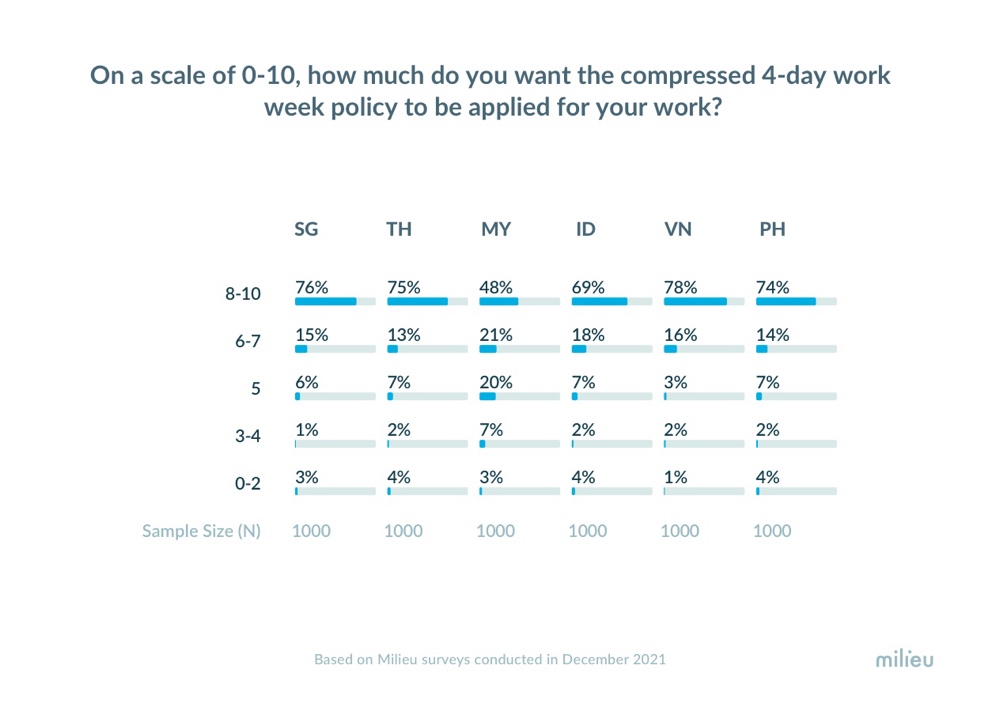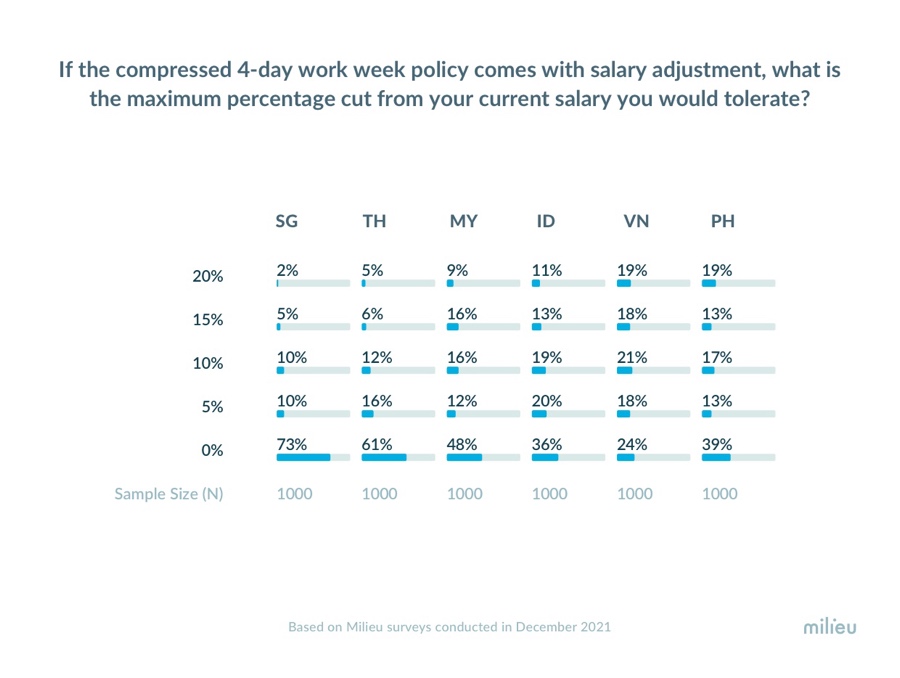
Employees are concerned about salary cuts, employers are concerned for team management

Four-day work weeks are starting to get traction in various workplaces around the world. In Southeast Asia, where the five-day work week remains dominant in offices, Milieu Insight carried out a survey on how employees would react to the possibility of shorter work weeks and extended weekends. Milieu Insight said they surveyed 6,000 employees across the region to find out their perceptions on a compressed four-day work week, where they will be rendering 10 hours per day for four days a week. Based on the results, majority of the employees surveyed in Singapore, Thailand, Malaysia, Indonesia, Vietnam, and the Philippines showed favour towards a compressed four-day work week.
Malaysia seemed the most reserved about it with only 48% of them agreeing to the shorter work week, while Vietnam seemed the most approving of the plan with 78%.

According to the surveyed employees, having a compressed four-day work week will give them greater work-life balance (67%), more time spent with loved ones (64%), and more time to be creative and generate ideas (48%). Southeast Asians also said it will increase their productivity (45%) and will make burn out less likely (44%).
But their concerns over such shorter weeks will be reduced salaries (53%), according to the survey, even if the proposed four-day work week will not reduce the total number of hours spent in the workplace. So, when asked how much cut they were willing to accept in exchange of a four-day work week, majority said they want none.

Aside from salary cuts, respondents also said that a 10-hour workday can also be stressful and tedious (47%), while some said it will create inequality where only select positions will enjoy the benefit (42%).
Difficult team management (31%) was also one of the concerns of the respondents on the possible downsides of four-day work weeks, and according to the survey, more employees in the managerial positions and above are more worried about that than junior-level staff.
Read more: Will you adopt a four-day work week?
Nations all around the world have been piloting four-day work weeks even before the pandemic began, but the outbreak of COVID-19 and introduction of remote work underscored to employees the importance of greater work-life balance.
Should employers try to implement them now, Dr Melanie Peacock, associate professor of HR at Mount Royal, said that organisations should first assess if a four-day work week for the company is feasible and if employees really want it.
"An initial review requires the structure of this offering. Will all employees work the same four days, or will there be staggered days off, or overlapping or core hours on-site during the workdays? What jobs are suitable for this type of arrangement, and which may not be? This requires that a thorough and transparent job analysis for all company roles be conducted," Peacock told HRD.
She added that transparency on why the change will also be made is necessary, according to the associate professor, adding that employees should also be given clear directions on what is expected of them.
"Employees must understand that all outcomes have been reached in a fair and equitable manner based upon business needs and role requirements," Peacock said.